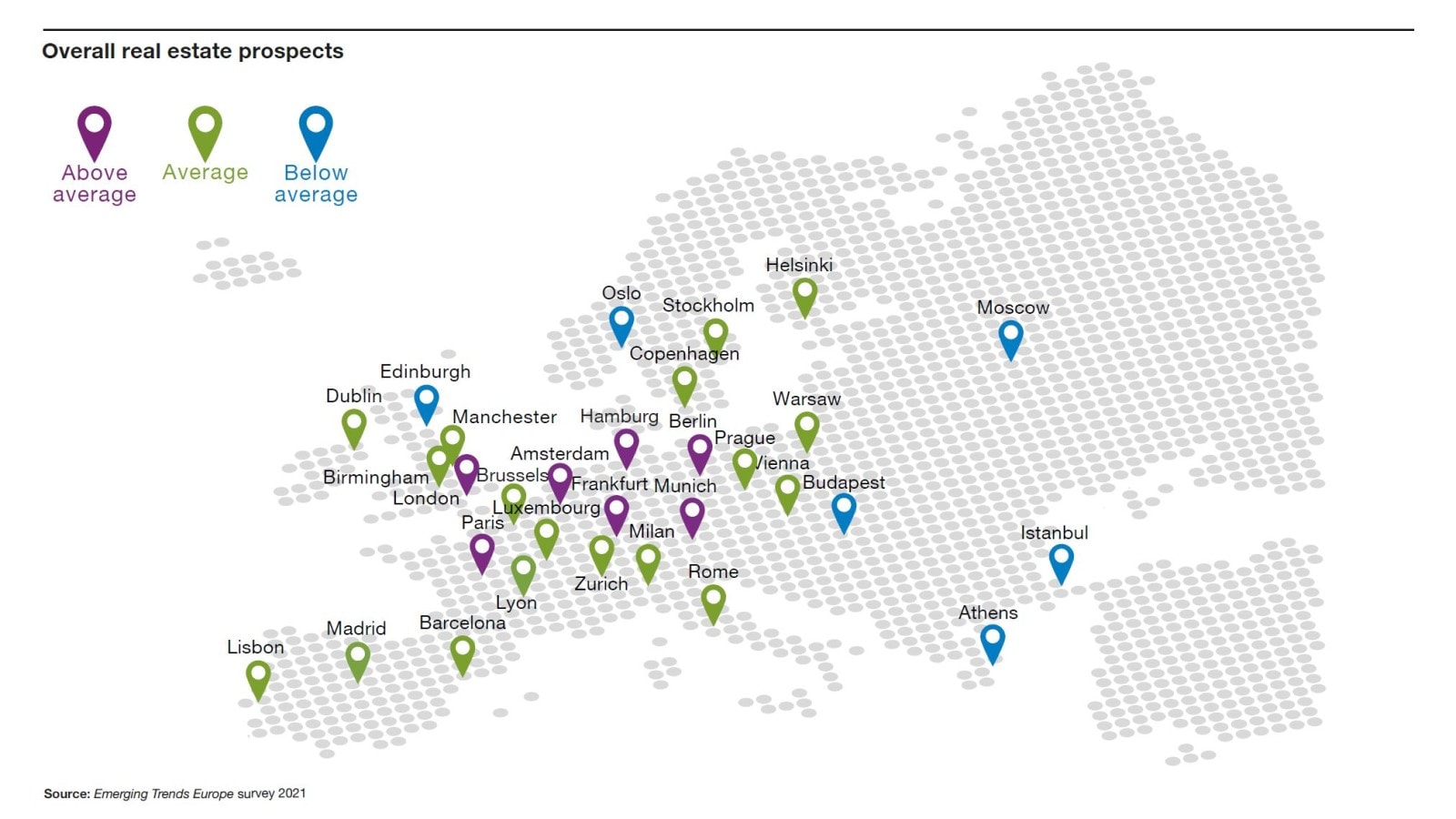
This year’s Emerging Trends in Real Estate® survey presents a sector in flux. The COVID-19 pandemic, government responses, the Environmental, social and corporate governance (ESG) agenda and push towards net zero and the acceleration of blurring of previously distinct asset classes are all driving significant change.
Real estate is generally still seen as one of the few investment asset classes to generate acceptable returns at a time of low or negative interest rates. However, the pandemic has forced millions to work from home, closed retail stores and accelerated structural changes impacting three mainstay sectors of the real estate world - office, retail and hospitality. 2020 poses immediate challenges to the security of income from these sectors.
The uncertainty has shifted priorities within the sector; this year’s market beneficiaries include assets operating in areas which have been minimally disrupted. Logistics and housing are particular beneficiaries, with data centres, life sciences buildings, energy infrastructure, and industrial property or warehouses benefitting from relatively stable demand. Communication towers/fibre have also benefited as life continues to shift online.
There is subsequently a growing requirement to look more closely at the value that can be derived from demand shifts and newer, emerging asset classes, as well as the connections between different types of Real Assets.
As one interviewee says, such uncertain and at times conflicting market conditions can lead to 'imperfect decision-making', making the overall industry outlook for 2021 one of caution.
The survey reveals a significant degree of pent up capital, with investors waiting for some resolution of 2020’s uncertainty. It also reveals an emerging bias towards domestic markets, as investors increasingly favour locations where they have more existing expertise, rely less on local experts and can more easily assess potential investments when travel restrictions are in place.
Amplifying this domestic focus, is the clear expectation that we will see a deals-led recovery with ample opportunities emerging over 2021 within domestic markets without perhaps having to venture overseas.
The prioritisation of stability has also helped Germany gain favour, with Berlin topping the city rankings this year. The relative health of Germany’s economy, combined with its effective handling of the virus, has helped the country through this period.
The survey also highlights a growing focus on environmental, social and governance concerns, including net zero strategies and diversity and inclusion. These topics feature prominently as part of an ongoing re-evaluation of real estate’s place in society and how it impacts the very fabric of how people live, work, consume and spend our leisure time. The pandemic has reinforced the importance in the minds of many industry leaders of the need to consider how the sector can reduce its carbon emissions, and the importance of the ESG agenda in general.

Regional hotspots

Germany has emerged as a regional beneficiary of the flux this year. The relative health of Germany’s economy – combined with low vacancies for office, residential, and logistics property in its major markets – has boosted investors’ confidence that income will be resilient in the face of the crisis.
Berlin has moved up to take the number one spot in “Overall real estate prospects” index (Table 3-1), particularly because of the stability of its office market and the upward potential in rents. Germany’s three other major markets - Frankfurt, Hamburg and Munich - remain firmly cemented in the top 10.
Respondents took the view that the events of 2020 are likely to lower the value of megacities, with contagion adding to the expense, complication and crowdedness of big city life, which may be headwinds on demand.
Despite short term concerns, investors are clearly optimistic about the investment opportunities in London and Paris for the year ahead. These capitals are commended for the relative liquidity they offer investors and their overall prospects in 2021.
Overall real estate prospects
| Overall rank | Overall prospects |
| 1 Berlin | 2.20 |
| 2 London | 2.12 |
| 3 Paris | 2.09 |
| 4 Frankfurt | 1.87 |
| 5 Amsterdam | 1.86 |
| 6 Hamburg | 1.77 |
| 7 Munich | 1.77 |
| 8 Madrid | 1.55 |
| 9 Milan | 1.25 |
| 10 Vienna | 1.24 |










